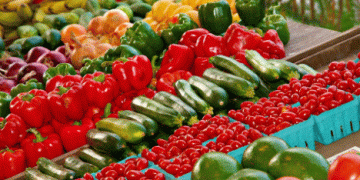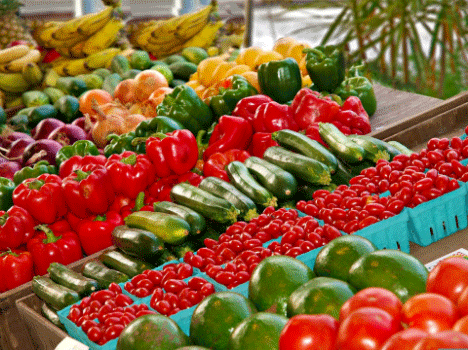The latest data from the Spanish Ministry of Agriculture, Fisheries, and Food shows that the Balearic Islands lead the nation in organic food consumption, with an impressive 24.1 kilograms per person annually, which is 10.8 kilograms above the national average. This significant difference highlights the region’s strong preference for organic products, which has been on the rise since formal monitoring began in 2020.
Key Drivers of Organic Food Consumption in Mallorca
- Plaza de los Patines Market: Palma’s organic market, known as Plaça dels Patins, stands out as the largest and most frequented in Spain. It plays a crucial role in the promotion and sale of organic products, adhering strictly to regulations to ensure fairness and transparency.
- Local Production: To be considered organic, products must meet the stringent requirements of EU Regulation 2018/848. Vendors at the market are required to produce at least 80% of their goods themselves, ensuring traceability and quality, as overseen by the Consell Balear de la Producció Agrària Ecològica.
- Consumer Awareness and Demand: Local producers and sellers, such as Pili, a vegetable grower, note a growing consumer preference for organic foods due to environmental consciousness and health benefits. Catalina Sartre, a regular market customer, emphasizes the authentic taste of organic products, further driving demand.
- Innovative Retail Models: Stores like Nu Market, which sells organic products in bulk to minimize waste, and other specialized shops like Organic Maggie and Yerbabuena, are expanding, indicating a robust market for organic foods.
Challenges and Opportunities
Despite the enthusiasm for organic products, market vendors face challenges such as inadequate facilities, including the lack of shade and toilets for customers. Miquel Coll, President of the Associació de la Producció Agrària Ecològica de Mallorca, points out that the broader Spanish market for organic food is still limited, with only 2.3% of all food products being organic. Additionally, a significant portion of Spain’s organic produce is exported, highlighting a gap in domestic consumption and awareness.
Mallorca’s leading position in organic food consumption underscores a growing trend towards sustainable and health-conscious eating. The island’s vibrant market scene, combined with strong local production and consumer demand, sets a positive example for the rest of Spain. However, to fully capitalize on this trend, there needs to be better support for market infrastructure and more effective public awareness campaigns to increase domestic consumption of organic products.































